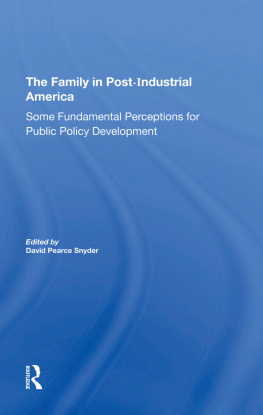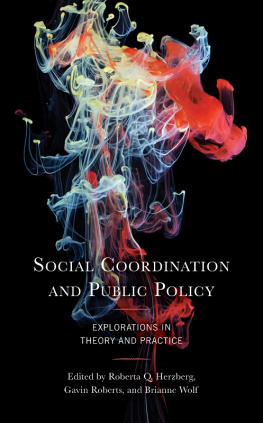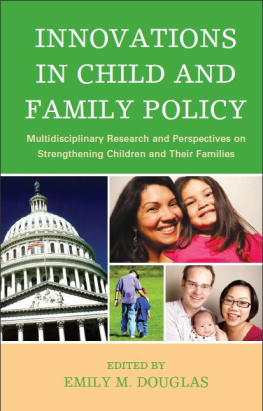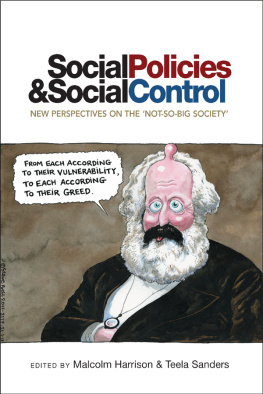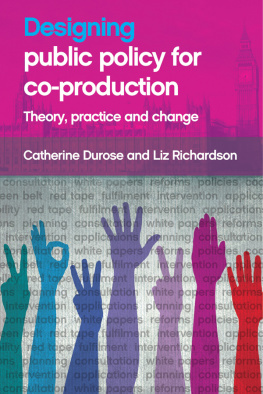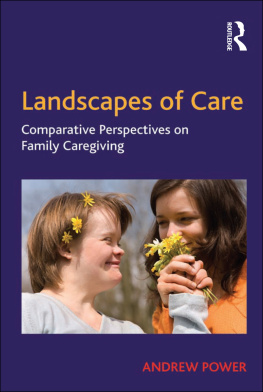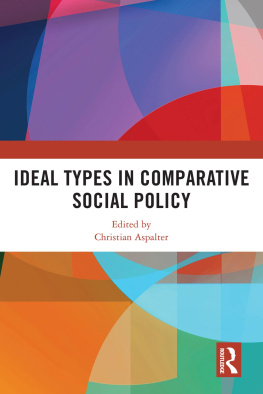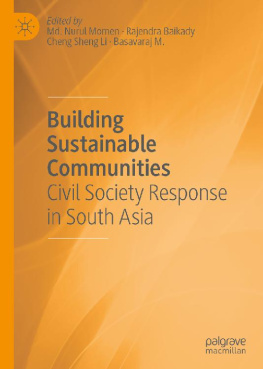The Family in Post-Industrial America
AAAS Selected Symposia Series
The Family in Post-Industrial America
Some Fundamental Perceptions for Public Policy Development
Edited by David Pearce Snyder
AAAS Selected Symposium 32
First published 1979 by Westview Press
Published 2018 by Routledge
52 Vanderbilt Avenue, New York, NY 10017
2 Park Square, Milton Park, Abingdon, Oxon OX14 4RN
Routledge is an imprint of the Taylor & Francis Group, an informa business
Copyright 1979 by the American Association for the Advancement of Science
All rights reserved. No part of this book may be reprinted or reproduced or utilised in any form or by any electronic, mechanical, or other means, now known or hereafter invented, including photocopying and recording, or in any information storage or retrieval system, without permission in writing from the publishers.
Notice:
Product or corporate names may be trademarks or registered trademarks, and are used only for identification and explanation without intent to infringe.
Library of Congress Cataloging in Publication Data
Main entry under title:
The Family in post-industrial America.
(AAAS selected symposium; 32)
Includes bibliographical references.
1. Family--United States--Congresses.
2. Family policy--United States--Congresses.
I. Snyder, David Pearce. II. Series: American
Association for the Advancement of Science. AAAS
selected symposium; 32.
HQ535.F343 301.42'0973 79-5230
ISBN 13: 978-0-367-29206-5 (hbk)
About the Book
Traditional public policy toward the family, the authors of this book argue, has produced an array of fragmented mechanical programs in response to specific, perceived "dysfunctions" in family performance. Policy has been biased by a restrictive perception that families unlike the nuclear, two-parent household are either ailing or aberrant.
In response to these observations, the authors portray the family as a natural, ongoing, and dynamically adaptive element of Western civilization. They suggest that legislators and policy analysts should view the household as a tangible social and economic asset and an appropriate technology with which a number of tasks (such as child care, education, health, disability and unemployment insurance, social security, and the welfare of the aged) now performed by more complex and costly formal institutions may be better accomplished.
About the Series
The AAAS Selected Symposia Series was begun in 1977 to provide a means for more permanently recording and more widely disseminating some of the valuable material which is discussed at the AAAS Annual National Meetings. The volumes in this Series are based on symposia held at the Meetings which address topics of current and continuing significance, both within and among the sciences, and in the areas in which science and technology impact on public policy. The Series format is designed to provide for rapid dissemination of information, so the papers are not typeset but are reproduced directly from the camera-copy submitted by the authors, without copy editing. The papers are organized and edited by the symposium arrangers who then become the editors of the various volumes. Most papers published in this Series are original contributions which have not been previously published, although in some cases additional papers from other sources have been added by an editor to provide a more comprehensive view of a particular topic. Symposia may be reports of new research or reviews of established work, particularly work of an interdisciplinary nature, since the AAAS Annual Meetings typically embrace the full range of the sciences and their societal implications.
WILLIAM D. CAREY
Executive Officer
American Association for the Advancement of Science
David P. Snyder is a senior planning officer with the U.S. Internal Revenue Service. His areas of specialization include personal, institutional, and community value systems and decision processes and information/communication technology. He is also associate director for sociopolitical forecasting programs, with the Industrial Management Center, Inc., and has served as an instructor in futures programs for the U. S. Civil Service Commission. He is also the editor of Life-Styles Tomorrow , president of the Washington, D.C. chapter of the World Future Society, and the author of numerous publications on the future, information systems, and social change.
Catherine M. Allen , an assistant professor of sociology and social work, Texas Tech University, specializes in the sociology of the family and social welfare policy. She has conducted family therapy in hospital and private agency settings, has presented papers on child abuse and wife abuse, and has served as a consultant on incest prevention. She was a consultant to the White House Conference on Families, evaluating the scope of federal research on the family, and she has also done research on a father's rights advocacy group.
Kenneth E. Boulding is a Distinguished Professor of Economics and director of the Program of Research on General Social and Economic Dynamics at the Institute of Behavioral Science, University of Colorado, Boulder. He has served as president of the American Economic Association and of the International Studies Association, is a member of the National Academy of Sciences, and is currently president of the American Association for the Advancement of Science. He has published widely in popular and scholarly journals and has written many books on economic policy and social dynamics, most recently Stable Peace (University of Texas, 1978). The recipient of many honors and awards, he is currently concerned with the area of general systems.
Joseph F . Coates is assistant to the director of the Office of Technology Assessment of the U. S. Congress and is a former program manager for technology assessment at the National Science Foundation. A chemist by training, his major current interest is planning for the future, with primary emphasis on the impact of technology on society. He has published numerous papers dealing with public affairs, technology assessment, military affairs, and criminal justice.
Gregg Edwards , presently manager of the National Science Foundation program New Knowledge for Productivity, was formerly assistant director for various science education programs at the Foundation. A physicist by training, he is active in numerous professional associations in physics, computer uses, and futures research.
David A. Goslin is the executive director of the Assembly of Behavioral and Social Sciences of the National Academy of Sciences. A sociologist by training, he has worked on many projects concerned with educational testing and technology and their social and ethical implications. He has been a special consultant to the College Board Commission on Testing, is a consultant to the Encyclopedia Britannica and to the Russell Sage Foundation, and is a member of many other advisory groups, including the Advisory Committee on Special Projects of the Center for Advanced Study in the Behavioral Sciences. He has published widely, particularly in the field of ethics, testing, and record-keeping in education, was the editor of Handbook of Socialization Theory (Rand McNally, 1969), and prepared the film A Place to Meet, A Way to Understand (in collaboration with Urie Bronfenbrenner and Bert Pence) for the White House Conference on Children (1970).

